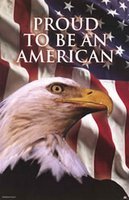Monday, October 10, 2005
A portion of my meanderings through the world of publishing have led me ask, what I consider to be a profound question—What is it that creates the difference between Christian fiction and secular fiction?
Is it because...oohh...someone mentioned the 'God word'? Nope! I've read the Almighty's name in many a secular novel, albeit sometimes it was used as a curse word (but I digress). Is it because someone SAYS its Christian fiction? Nah, believe me, I've read quite a few Christian fiction novels, that other than the fact that I bought them in a Christian book store, I would have assumed they were secular.
Is it because the writer is a Christian? No, again! Many Christians write secular fiction, and NEWS flash, many secular people are beginning to write under the Christian fiction label. Another example of that aberration can be seen in the new popularity of Christian music. Christian music is sometimes preformed by bands that are not professing Christians.
Christian fiction may not be popular in other countries, but in the United States, according to industry news published by Crossover Fiction.com, the growth projections for Christian publishing in 2009 will be $2.91 billion. That equates to a 50% increase over 2004.
The cross-over appeal of clean fiction is driving more secular publishers to create or buy Christian imprints. Random House bought WaterBrook, HarperCollins acquired Zondervan, and Harlequin created Steeple Hill, just to name a few. Then you have Doubleday, Penguin, and Oxford University Press, who all want part of the action. BantomDell signed Tim LaHaye, of Left Behind fame, to a $45 million book contract for a new series.
But I've made you guess for long enough. The actual difference between Christian and secular fiction is the CBA vs. the ABA.
To be classified as Christian, Christian Booksellers Association guidelines dictate, no explicit sex, a minimum of sensuality, and unless it is part of the struggle of the protagonist, there should be no premarital sex or graphic violence. The degree of religiousness can vary and they prefer that you not use denominations by name.
ABA...American Booksellers Association guidelines...as far as I can tell, anything goes. If I am mistaken I would appreciate correction.
Those are the only distinguishable differences in the markets. Another draw that seems to be bringing secular people into the Christian publishing world is the fact that you can actually find a publisher without an agent, and that doesn't happen too often in the secular world.
What are your views? I know both secular and Christian writers visit this site? Let's hear from you!



























on the other hand works like Marilynne Robinson's Gilead, which was published ABA is clearly christian fiction. anyone reading it will be changed by it.
so i wonder is there anything that can be done. Christ says beware of false prophets so we need to be studied up to know whether what we are reading is divine.
thanks for the entry.
You shop at a secular grocery store, and everybody shops at Wally world, don't you?
Same difference as publishing with a secular house. We can't affect the world if we stay to ourselves. And as for the money thing...God doesn't need our help. We need His! Get published and help to affect the world.
Good post.
As Dee pointed out with Gilead, when a novel is explicitly Christian it shows--no glows!
Divinity is in the creator, given to the author by grace, and not in an ABA or CBA label.
I've been suprised by both.
Dee's right--we gotta stay plugged into the real deal to discern what's truly Christian Fiction.